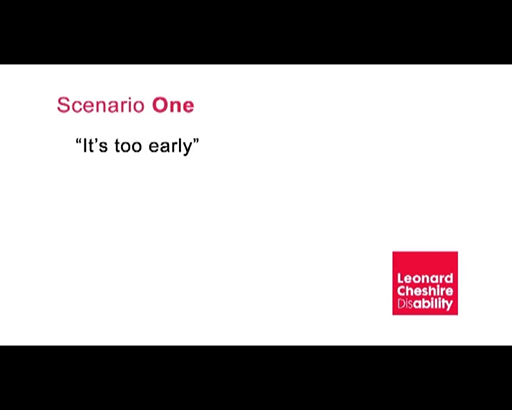4.1 Providing the right kind of support
People receiving care should have a care plan that has been written by them (if they have capacity), with support from their carers. The care plan will help others to know what care should be provided, but also how to support that person in a way that is right for them.
Activity 6

Transcript: Working in an empowering way – it’s too early
Working in an empowering way – it’s too early
Watch this video and think about whether Tim was receiving person-centred support.
- Do you think Tim’s carer had looked at his care plan to see what kind of start to his day Tim would prefer?
- How could she have managed it differently?
- How do you think Tim felt?
- What could Tim have done differently?
Make some notes in the box below.
Comment
Tim’s carer was not working in a person-centred way. She did not consider his privacy when she entered the room without knocking or checking to see whether he was ready to get up.
When Tim asked for ‘another five minutes’ she could have gone to see if the next person was ready to get up and come back to Tim afterwards.
She could also have asked Tim what he wanted to do about his breakfast – perhaps he could have had it in his room if he wanted to stay in bed.
Also, she didn’t need to get his clothes out for him. Tim could have told her what he wanted to wear when he was ready to get dressed.
The carer’s actions shown in the video would have made Tim feel helpless about everyday decisions about his own life being taken out of his control. There wasn’t much Tim could have done at that moment because the carer was not listening to him – she was just focusing on getting through her tasks of getting people up and ready for breakfast. But Tim could have arranged to have a ‘please knock’ sign put on his door for a start, and he could also have put into his care plan that he liked a lie-in in the mornings so that he could be left longer before care staff got him out of bed.
Having some control over our own lives is vital for our well-being.
